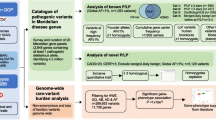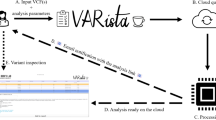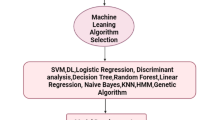Abstract
Over time, there has been a significant increase in clinical genetic testing technologies, including whole exome sequencing and large multi-gene panels, as well as the number of conditions for which testing is available, the settings in which testing is offered, and the utilization of a genotype-first evaluative strategy. Discussing the risks and benefits of each potentially appropriate test, including the possibility for incidental or uncertain findings, has added a level of informational complexity that did not exist when the original models of genetic counseling were developed. We review how genetic counseling paradigms have evolved over time, articulate some key differences between genetic and genomic counseling, and suggest a ‘back to basics’ approach that reprioritizes psychosocial counseling and the crafting of ‘take-home messages’ tailored to the motivation for and expectations of genetic evaluation. Additionally, we offer some practical approaches to exploring patients’ potential responses to testing outcomes.
Similar content being viewed by others
References
Papers of particular interest have been highlighted as: • Of importance •• Of major importance
De Sa J, Carlson B, Caputo N, Vojta D, Sandy L, Stevens S. Growth of molecular diagnostics and genetic testing in the USA, 2008–2011 analysis and implications. Personal Med. 2013;10(8):785–92.
Hooker GW, Ormond KE, Sweet K, Biesecker BB. Teaching genomic counseling: preparing the genetic counseling workforce for the genomic era. J Genet Counsel. 2014;23:445–51. doi:10.1007/s10897-014-9689-4.
McGowan M, Glinka A, Highland J, Asaad G, Sharp R. Genetics patients’ perspectives on clinical genomic testing. Personal Med. 2013;10(4):339–47.
Caulfield T, Ries N, Ray P, Shuman C, Wilson B. Direct-to-consumer genetic testing: good, bad or benign? Clin Genet. 2010;77(2):101–5.
Hunt L, de Voogd K, Castañeda H. The routine and the traumatic in prenatal genetic diagnosis: does clinical information inform patient decision-making? Patient Educ Counsel. 2005;56(3):302–12.
Fraser FC. Introduction: the development of genetic counseling. Birth Defects Orig Artic Ser. 1979;15:5–15.
• Dice LR. Heredity clinics: their value for public service and for research. Am J Hum Genet. 1952;4:1–13. This manuscript highlights the issues considered when the original genetics clinics were established in America. It reviews pertinent components of a genetic clinic, many of which are still relevant today, as well as the values of reproductive autonomy of early physicians and researchers providing clinical genetic counseling in the 1950s, in comparison to the eugenics movement.
• Stern A. Telling genes: the story of genetic counseling in America. Baltimore: The Johns Hopkins University Press; 2012. Presents a review of the history of genetic counseling as a profession in the context of changing perceptions of society, genetics, and medicine over time. It comments on the evolution of the role of the genetic counselor in practice, as well as ethical issues surrounding the field. It is a product of active collaboration with experienced genetic counselors and theorists in the field of genetic counseling.
Kessler S. Genetic associates/counselors in genetic services. Am J Med Genet. 1980;7:323–34.
American Society of Human Genetics Ad Hoc Committee on Genetic Counseling. Genetic counseling. Am J Hum Genet. 1975;27:240–2.
National Society of Genetic Counselors’ Definition Task Force, Resta R, Biesecker BB, et al. A new definition of genetic counseling: national society of genetic counselors’ task force report. J Genet Counsel. 2006;15:77–83. doi:10.1007/s10897-005-9014-3.
Shashi V, McConkie-Rosell A, Schoch K, Kasturi V, Rehder C, Jiang Y et al. Practical considerations in the clinical application of whole exome sequencing. Clin Genet. 2015. doi:10.1111/cge.12569.
• Ormond KE. From genetic counseling to “genomic counseling”. Mol Genet Genomic Med. 2013;1:189–93. doi:10.1002/mgg3.45. This manuscript summarizes the need for and barriers to transitioning from genetic counseling to genomic counseling. It defines genomic counseling as counseling about whole exome sequencing, and makes a distinction of scope and approach between genetic and genomic counseling. It notes most of the specifics have yet to be addressed.
Mills R, Haga SB. Genomic counseling: next generation counseling. J Genet Counsel. 2014;23:689–92. doi:10.1007/s10897-013-9641-z.
Sturm AC, Manickam K. Direct-to-consumer personal genomic testing: a case study and practical recommendations for “genomic counseling”. J Genet Counsel. 2012;21(3):402–12. doi:10.1007/s10897-012-9489-7.
Accreditation Council for Genetic Counseling (2014). Practice-based competencies for genetic counselors. http://gceducation.org/Documents/ACGC%20Core%20Competencies%20Brochure_14_Web_FINAL.pdf. Accessed 17 March 2015.
•• Austin J, Semaka A, Hadjipavlou G. Conceptualizing genetic counseling as psychotherapy in the era of genomic medicine. J Genet Counsel. 2014;23:903–9. doi:10.1007/s10897-014-9728-1. Discusses genetic counseling conceptualized as a high impact, compact psychotherapeutic intervention. Reviews the theoretical basis behind psychosocial genetic counseling, discusses the impact of effective psychosocial counseling on information retention and patient satisfaction, and calls for a re-focusing on psychosocial counseling in the genomic era.
Roter D, Ellington L, Erby LH, Larson S, Dudley W. The Genetic Counseling Video Project (GCVP): models of practice. Am J Med Genet C Semin Med Genet. 2006;142C(4):209–20.
Meiser B, Irle J, Lobb E, Barlow-Stewart K. Assessment of the content and process of genetic counseling: a critical review of empirical studies. J Genet Counsel. 2008;17(5):434–51. doi:10.1007/s10897-008-9173-0.
•• Edwards A, Gray J, Clarke A, Dundon J, Elwyn G, Gaff C, Hood K, Iredale R, Sivell S, Shaw C, Thornton H. Interventions to improve risk communication in clinical genetics: systematic review. Patient Educ Counsel. 2008;71(1):4–25. doi: 10.1016/j.pec.2007.11.026. Comprehensive review of 18 studies examining the perceived effectiveness of genetic counseling, specifically with the intent to determine what aspects of genetic counseling are most helpful. Outcome and process data suggest that psychosocial-predominant sessions, as opposed to education-predominant sessions, were consistently valued by patients.
•• Knowles M. The adult learner: a neglected species. 3rd ed. Houston: Gulf Publishing; 1973. Available at http://files.eric.ed.gov/fulltext/ED084368.pdf. Accessed 29 Jan 2015. Knowles entire body of work establishes the principles for educating adult learners and applying those principles to educational interventions. Specifically, this resource differentiates the adult learner and explicates their traits and the factors that motivate adult learning.
Murray M. Educating physicians in the era of genomic medicine. Genome Med. 2014;6(6):45. doi:10.1186/gm564.
• Pyeritz R. The family history: the first genetic test, and still useful after all those years? Genet Med. 2012;14(1):3–9. Reviews the history of the family history, utility of the family history, and discusses barriers to its use in medicine.
Acheson L, Wiesner G, Zyzanski S, Goodwin M, Stange K. Family history-taking in community family practice: implications for genetic screening. Genet Med. 2000;2:180–5.
Vento J. Family history: a guide for Neurologists in the age of genomic medicine. Semin Pediatr Neurol. 2012;19(4):160–6.
Stroh E. Taking the family history in genetic disease: a guide for ophthalmologists. Curr Opin Ophthalmol. 2011;22(5):340–6.
Trotter T, Martin H. Family history in pediatric primary care. Pediatrics. 2007;120(Suppl 2):S60–5.
Bender P. Genetic family risk assessment. AACN Clin Issues. 1998;9(4):483–90.
Acknowledgments
The authors would like to thank Ms. Barbara Bernhardt, Ms. Rebecca Mueller, and Dr. Louise Pyle for their thoughtful comments on previous drafts of this manuscript.
Disclosure
SL Merrill and KJ Guthrie both declare no conflicts of interest.
Human and Animal Rights and Informed Consent
This article does not contain any studies with human or animal subjects performed by any of the authors.
Author information
Authors and Affiliations
Corresponding author
Additional information
This article is part of the Topical Collection on Genetic Counseling and Clinical Testing.
Rights and permissions
About this article
Cite this article
Merrill, S.L., Guthrie, K.J. Is it Time for Genomic Counseling? Retrofitting Genetic Counseling for the Era of Genomic Medicine. Curr Genet Med Rep 3, 57–64 (2015). https://doi.org/10.1007/s40142-015-0068-8
Published:
Issue Date:
DOI: https://doi.org/10.1007/s40142-015-0068-8




